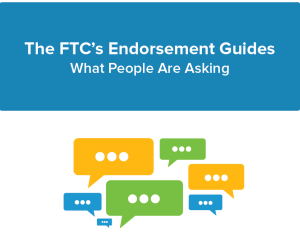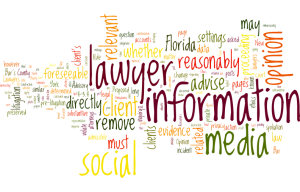Advertisers should think twice about placing promotional messages on mobile and social media platforms like Twitter if those ads require disclosures or disclaimers to avoid being deceptive or unfair, the U.S. Federal Trade Commission said on Tuesday.
The updated guidelines for online advertising represent the commission’s attempt to catch up to more than a decade of fast-evolving new technology, from the advent of the mobile revolution to an explosion in social media like Facebook and Twitter.
This year, as in the last report issued in 2000, the FTC holds online advertisers to the same standards of honesty and full disclosure as newspapers and television.
But the limited space available on mobile platforms maintained by Twitter, Facebook and others means that it is difficult to place appropriate disclosures close enough to the ad, or prominently enough, to ensure users see it.
“Advertisers should make sure their disclosures are clear and conspicuous on all devices and platforms that consumers may use to view their ads,” the FTC’s Lesley Fair said in a blog post accompanying the 53-page report.
“That means that if an ad would be deceptive or unfair (or would otherwise violate an FTC rule) without a disclosure — but the disclosure can’t be made clearly and conspicuously on a particular device or platform — then that ad shouldn’t run on that device or platform,” Fair wrote.
And the FTC discouraged the use of pop-ups for disclosures since they are so often blocked.
“Most webpages viewable on desktop devices may also be viewable on smartphones,” the FTC said in the report. “Advertisers should design the website so that any necessary disclosures are clear and conspicuous, regardless of the device on which they are displayed.”
Twitter already requires celebrities and others who endorse products to disclose that they are being paid. Facebook had no immediate comment.
“Many of the themes about social media were already surfaced (by the FTC) a few years ago,” said Eric Goldman, Professor of Law and Director of the High Tech Law Institute at Santa Clara University School of Law.
He said the FTC’s guidelines placed the burden more on advertisers and users who take payments, than on platform companies such as Twitter or Facebook. “I don’t see anything that specifically tells Twitter, Facebook or other platforms how they have to design their platform.”
“The guidelines don’t have the force of law. but the FTC is trying to let industry know what it expects industry to do, and when the industry doesn’t do what the FTC wants, the FTC tends to get cranky.”
Original article
 Antidiscrimination:
Antidiscrimination:







